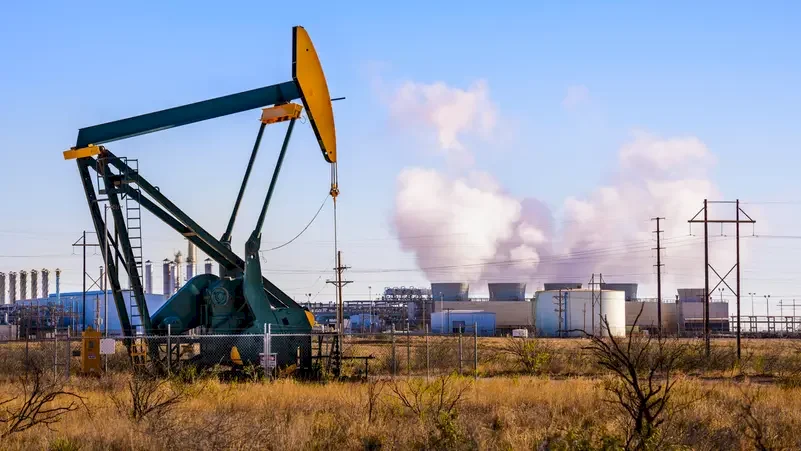
Oil Prices Fall as Activity Resumes at Russian Port Bombed by Ukraine
SadaNews - Oil prices fell after signs of resumed activity at the main Russian port of Novorossiysk on the Black Sea, following a Ukrainian attack last week that caused some damage and halted operations.
Brent crude dropped below $64 a barrel after closing up more than 2% on Friday following the attack, while West Texas Intermediate crude fell to around $59.
Two tankers docked on Sunday in Novorossiysk, indicating operational activity at the terminals, while Reuters reported that crude loading has resumed.
The attack on the Russian port, along with Iran's seizure of a tanker near the Strait of Hormuz, introduced a new geopolitical premium on prices, adding slight weekly gains for crude. However, the market faces a potential oversupply, with OPEC+ and non-member producers increasing output, limiting price gains.
Global Refining Margins Increase Due to Supply Disruptions
Globally, refining margins surged as attacks on energy infrastructure in Russia continued, coupled with outages at key facilities in Asia and Africa, and ongoing closures in Europe and the United States, which curtailed diesel and gasoline supplies from the market.
Meanwhile, Serbia expressed its willingness to pay a premium to regain control of the country's only oil refinery "NIS", as it attempts to free the Russia-owned company from U.S. sanctions, according to President Aleksandar Vucic on Sunday. The owners of "NIS" are negotiating with investors from Asia and Europe who may acquire it.

The Trap of High Prices: Debts Haunt Germans and Bankruptcy Knocks at Their Doors

Major Changes in the Saudi Public Investment Fund… What is Happening?

Gold Stabilizes and Heads for its Seventh Consecutive Monthly Gain

The IMF Disburses Approximately $2.3 Billion to Egypt Following Two Reviews of the "Reform...

Oil Rises Amid Expectations for Nuclear Negotiations Between Washington and Tehran

Gold prices near $5187 per ounce as tensions escalate

How Will Oil Be Affected If Tensions Between Washington and Tehran Escalate?
